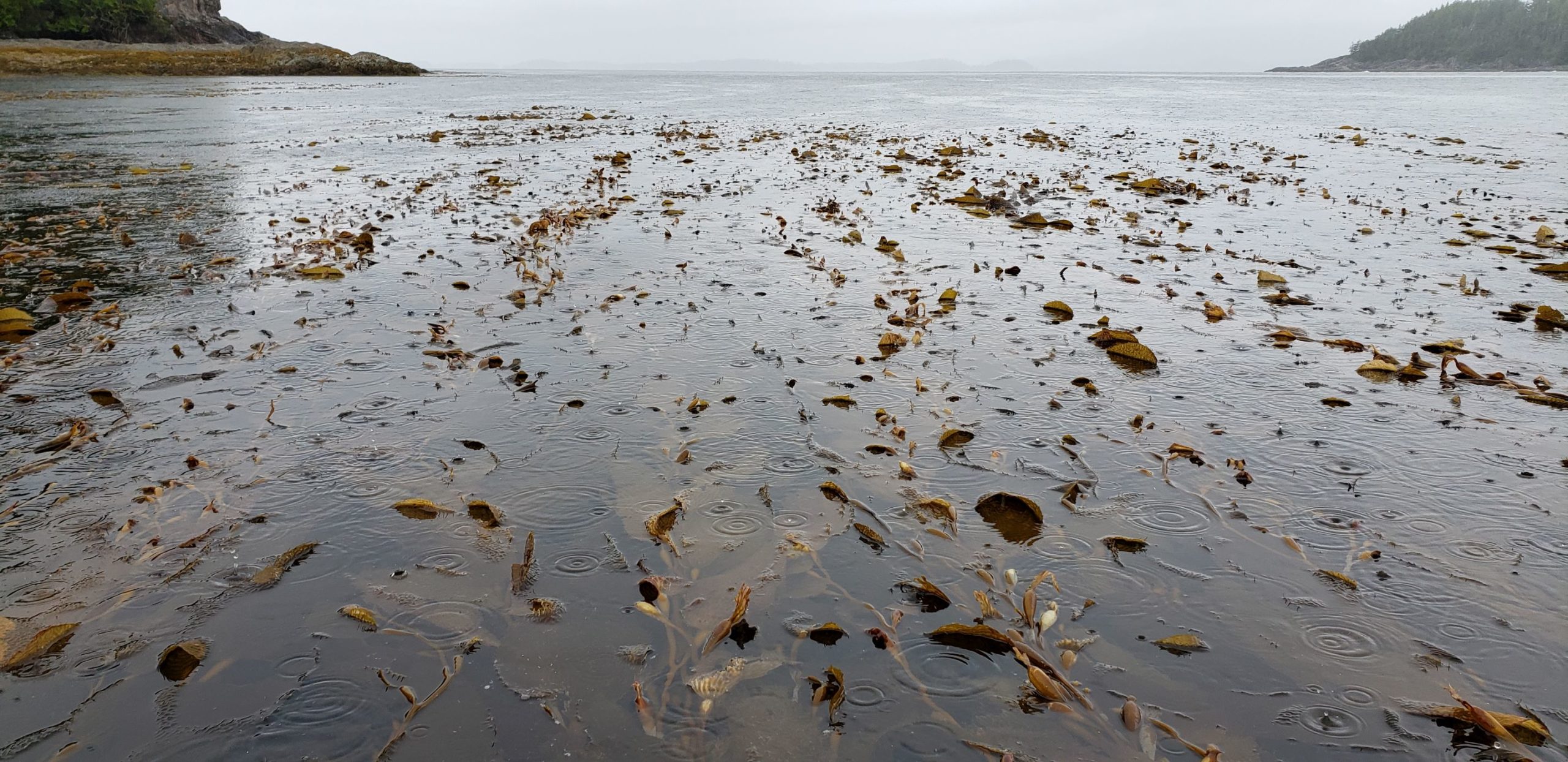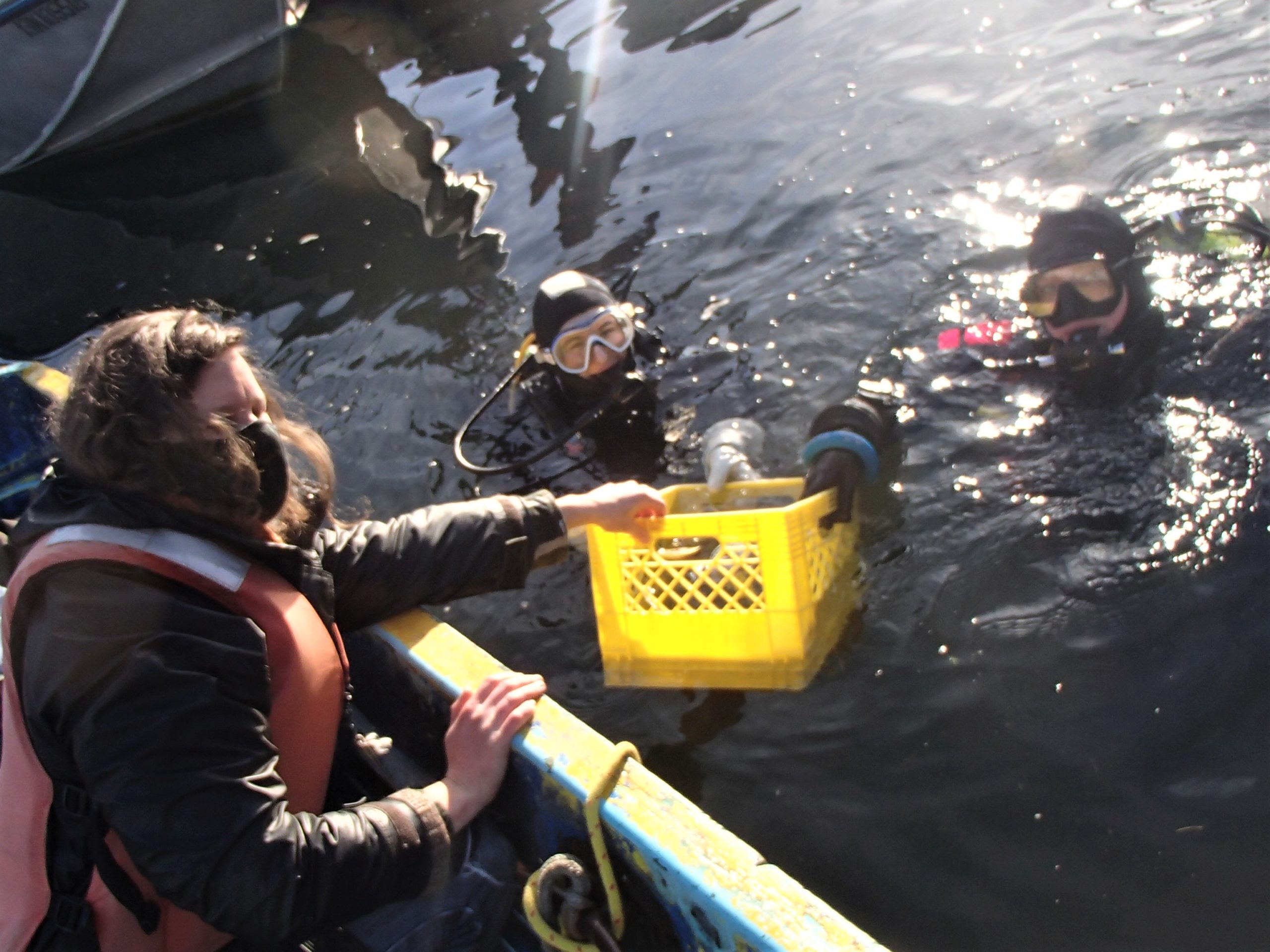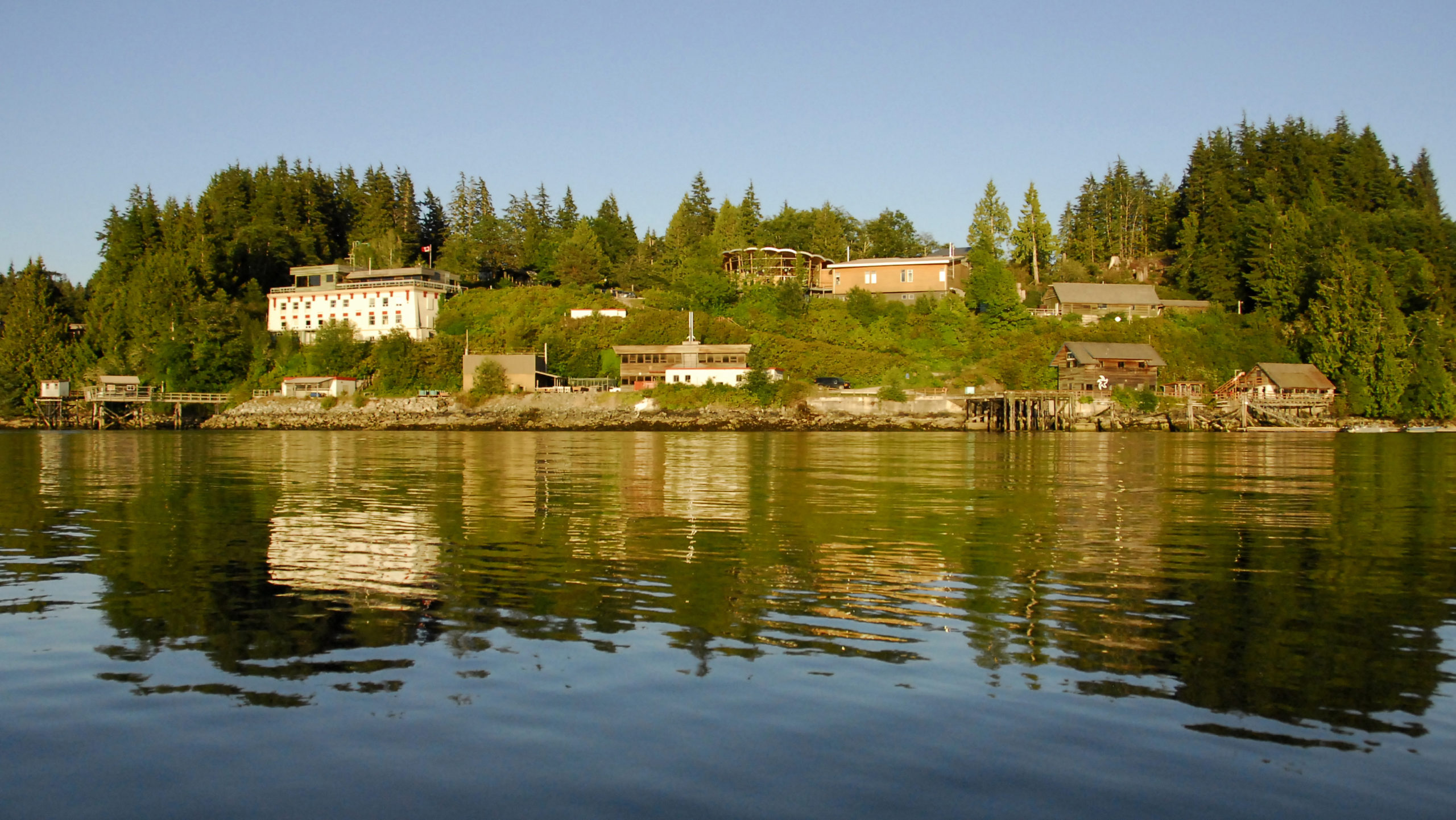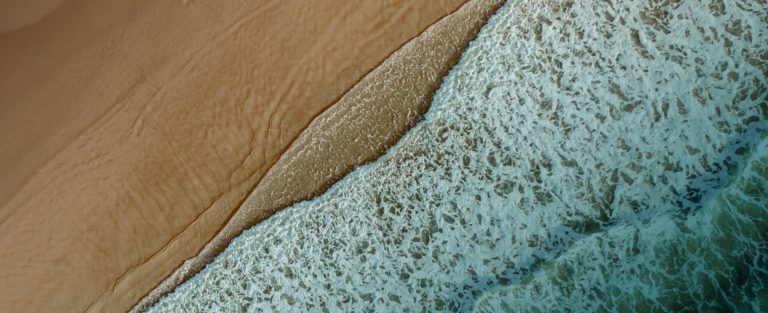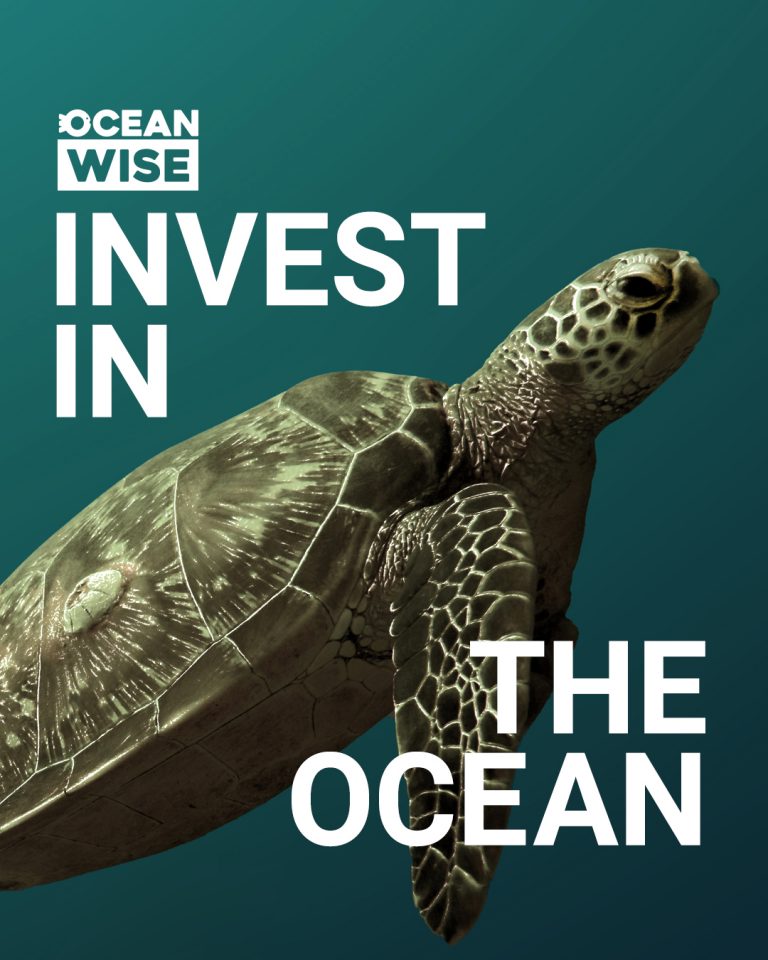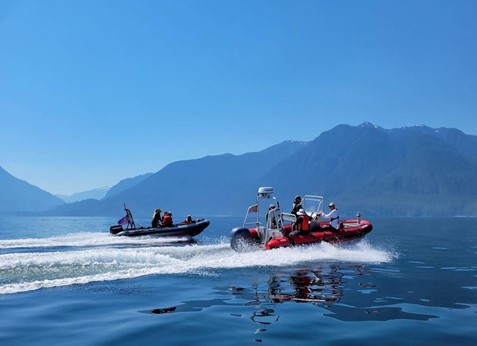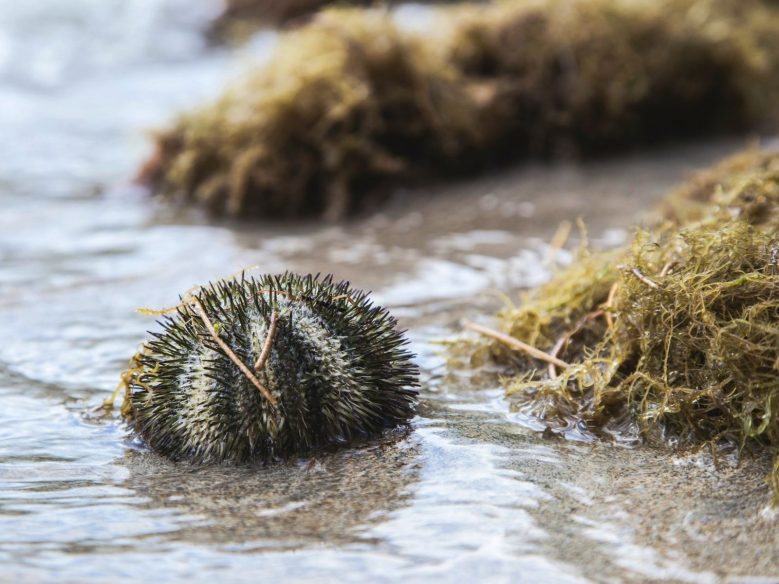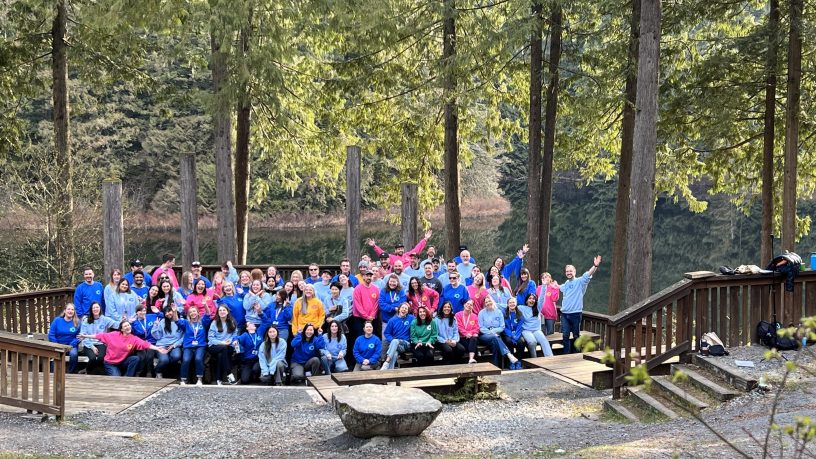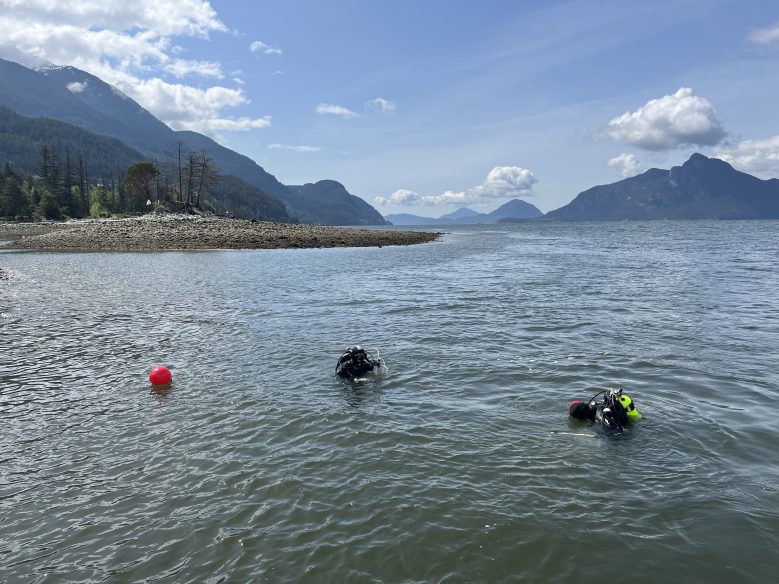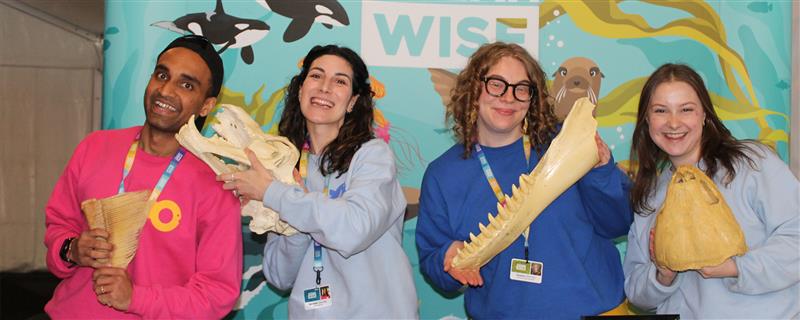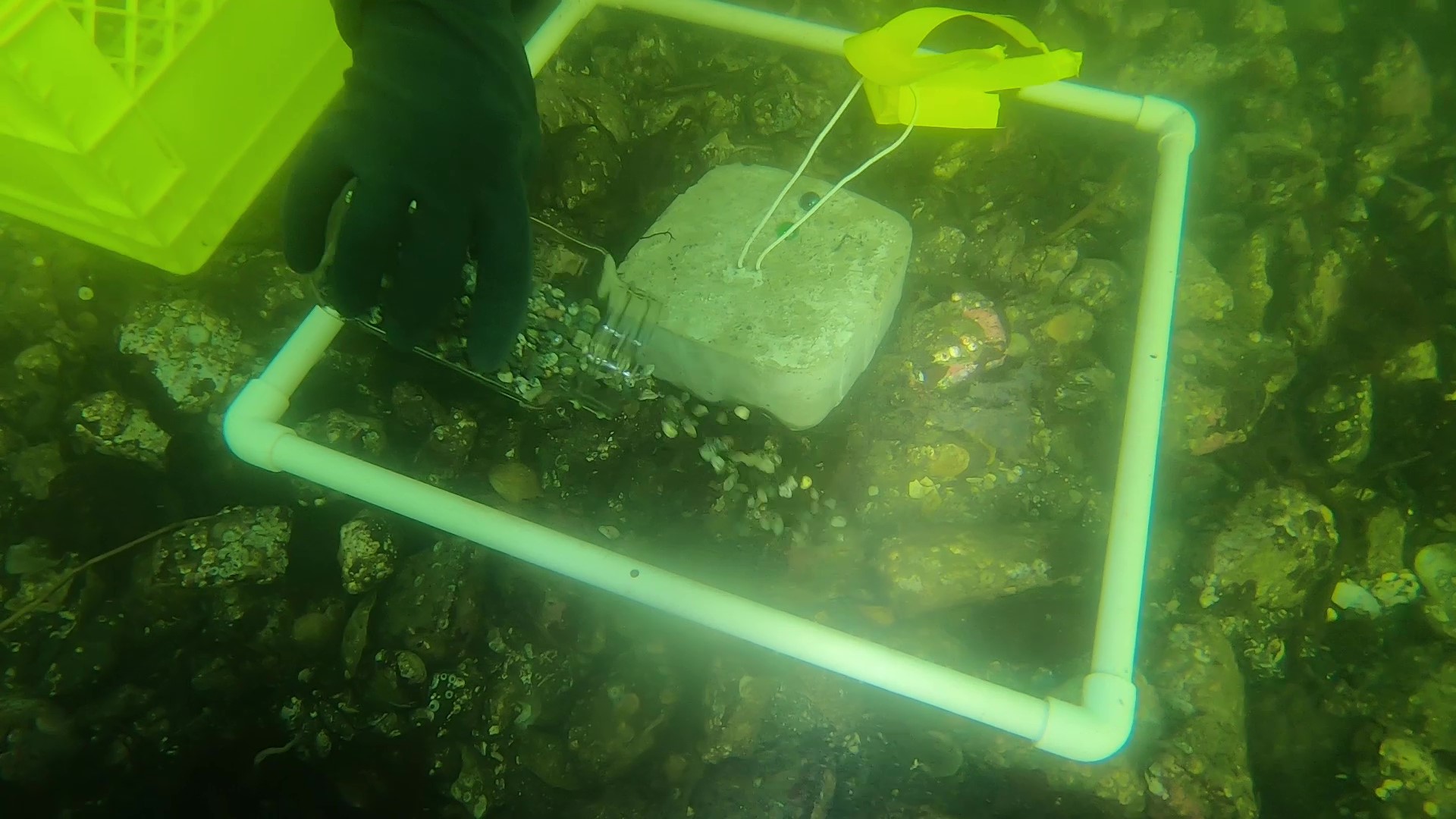
‘Green Gravel’ initiative hopes to seed new kelp forests on Canada’s West Coast
Scientists see huge potential of kelp as an ocean-based solution to climate change
By scattering handfuls of pebbles, a team of seaweed growers and scientists hopes to make waves in the effort to restore and future-proof the world’s disappearing kelp forests.
Kelp are giant brown seaweeds that drive the near-shore ecosystem productivity and provide vital habitat for fishes, including salmon. As the oceans warm, kelp forests around the globe are being threatened by the direct and indirect effect of rising temperatures and other stressors.
Working out of the Bamfield Marine Sciences Centre (BMSC), on Vancouver Island, Canada, scientists Sam Starko and Chris Neufeld first began observing widespread declines in kelp after the recent marine heatwave, known as “The Blob”, a pattern mirroring recent kelp forest declines elsewhere in places like Australia and California.
In the efforts to reverse widespread losses in giant kelp (Macrocystis) beds in Barkley Sound, Vancouver Island, BC, Canada Starko and Neufeld have teamed up with Ocean Wise Conservation Association and Canadian Kelp Resources, Ltd., a company that initiated kelp farming in North America in the 1980s, and is now using gravel inoculated with giant kelp seedlings as part of the effort to create scalable solutions for kelp forest restoration.
This team is part of an international group of researchers called the Green Gravel Action Group aiming to develop and implement scalable solutions for kelp forest restoration globally.
“Our ultimate goal is to be able to use seedlings from the most resilient kelp populations to scale up efforts to restore these important marine habitats”, said Dr. Neufeld.
An initial seeding trial was conducted in front of the Bamfield Marine Sciences Centre in January, with support from BMSC staff. The results of the effort will become clear later this spring. And the stakes are high.
“Kelp forests, if restored and expanded, have the potential to draw down huge amounts of greenhouse gases from the atmosphere. This project is paving the way for restoration at scale in the northeastern Pacific”, said Dr. Carlos Drews, Executive Vice-President of Conservation at Ocean Wise.
Ocean Wise is working on the restoration and farming of kelp at scale as an ocean-based solution to climate change. To read more about Ocean Wise’s ‘Seaforestation’ initiative, visit ocean.org/seaforestation.
Posted March 4, 2021 by Ocean Wise
